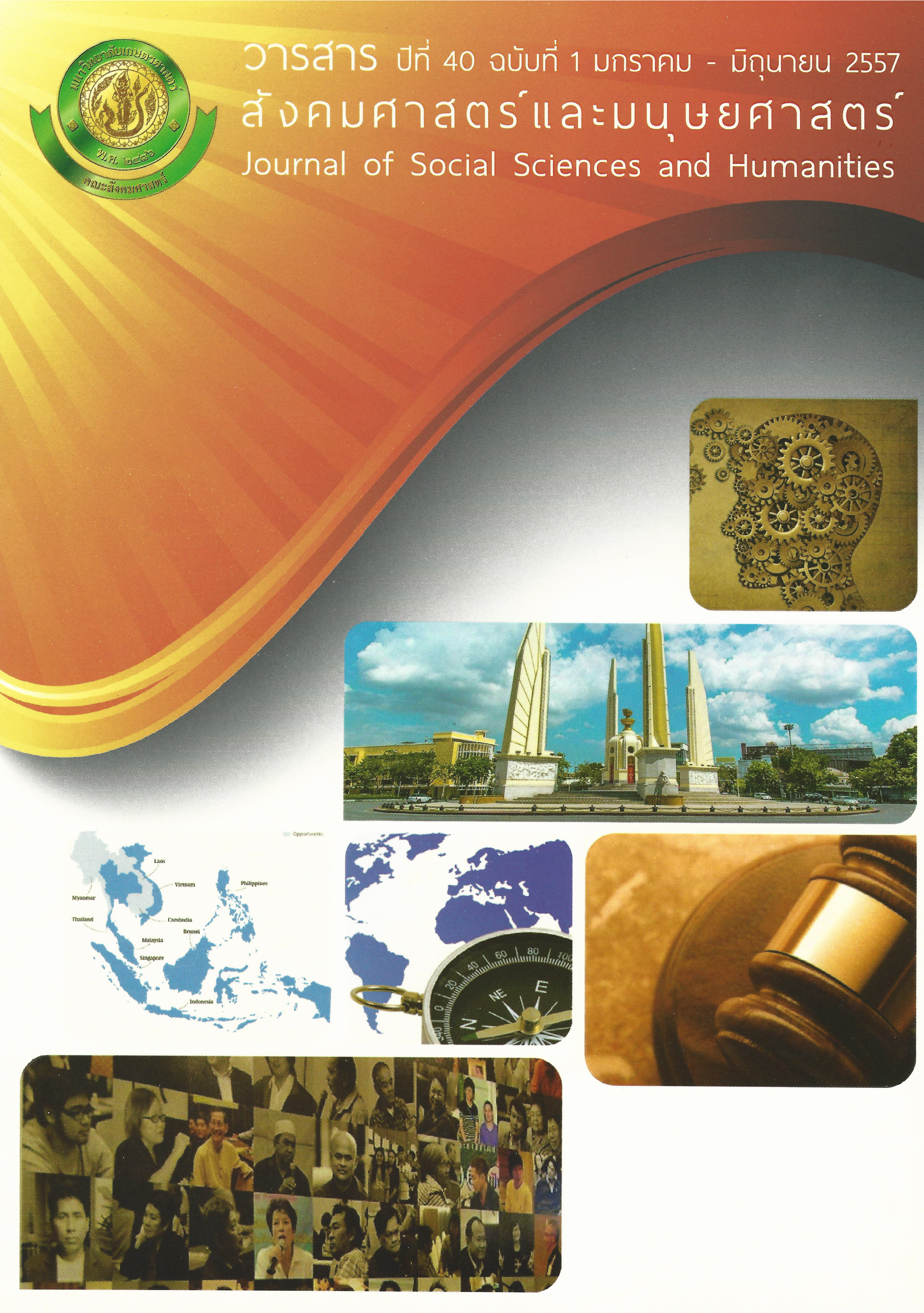ความเชื่อด้านสุขภาพ การรับรู้ความสามารถของตนเองรูปแบบการอบรมเลี้ยงดูกับพฤติกรรมการดูแลสุขภาพตนเองของนักเรียน ชั้นมัธยมศึกษาตอนปลาย โรงเรียนสตรีนนทบุรีจังหวัดนนทบุรี
Main Article Content
บทคัดย่อ
การวิจัยครั้งนี้มีวัตถุประสงค์เพื่อศึกษาระดับความเชื่อด้านสุขภาพ การรับรู้ความสามารถของตนเอง รูปแบบการอบรมเลี้ยงดูกับพฤติกรรมการดูแลสุขภาพตนเองของนักเรียนชั้นมัธยมศึกษาตอนปลาย โรงเรียนสตรีนนทบุรี จังหวัดนนทบุรี เพื่อเปรียบเทียบพฤติกรรมการดูแลสุขภาพตนเองของนักเรียน ตามปัจจัยส่วนบุคคลแตกต่างกัน ศึกษาความสัมพันธ์ระหว่างความเชื่อด้านสุขภาพกับพฤติกรรมการดูแลสุขภาพตนเอง ตลอดจนความสัมพันธ์ระหว่างการรับรู้ความสามารถของตนเองกับพฤติกรรมการดูแลสุขภาพตนเอง และความสัมพันธ์ระหว่างรูปแบบการอบรมเลี้ยงดูกับพฤติกรรมการดูแลสุขภาพตนเอง กลุ่มตัวอย่างเป็นนักเรียนชั้นมัธยมศึกษาตอนปลายโรงเรียนสตรีนนทบุรี จังหวัด นนทบุรี จำนวน 317 คน เก็บรวบรวมข้อมูลโดยใช้แบบสอบถาม และวิเคราะห์ข้อมูลด้วยโปรแกรมสำเร็จรูปทางสถิติ สถิติที่ใช้ ได้แก่ สถิติเชิงพรรณนา การทดสอบแบบที การวิเคราะห์ความแปรปรวน การทดสอบรายคู่ด้วยวิธีความแตกต่างนัยสำคัญน้อยที่สุด และค่าสัมประสิทธิ์สหสัมพันธ์แบบเพียร์สัน ผลการวิจัยพบว่า ความเชื่อด้านสุขภาพ การรับรู้ความสามารถของตนเอง รูปแบบการอบรมเลี้ยงดู และพฤติกรรมการดูแลสุขภาพตนเองของนักเรียนชั้นมัธยมศึกษาตอนปลายอยู่ในระดับสูง นักเรียนที่มี ปัจจัยส่วนบุคคลแตกต่างกัน มีพฤติกรรมการดูแลสุขภาพตนเองไม่แตกต่างกัน ความเชื่อด้านสุขภาพมีความสัมพันธ์ทางบวกกับพฤติกรรมการดูแลสุขภาพตนเองของนักเรียนอย่างมีนัยสำคัญทางสถิติที่ระดับ .01 และที่ระดับ .05 ตามลำดับ การรับรู้ความสามารถของตนเองมีความสัมพันธ์ทางบวกกับพฤติกรรมการดูแลสุขภาพตนเองของนักเรียนอย่างมีนัยสำคัญทางสถิติที่ระดับ .01 รูปแบบการอบรมเลี้ยงดูแบบให้อิสระอย่างมีขอบเขต แบบปล่อยปละละเลย และแบบยอมตามบุตรมีความสัมพันธ์ทางบวกกับพฤติกรรมการดูแลสุขภาพตนเองของนักเรียนอย่างมีนัยสำคัญทางสถิติที่ระดับ .01 ส่วนการอบรมเลี้ยงดูแบบเข้มงวดไม่มีความสัมพันธ์กับพฤติกรรมการดูแลสุขภาพตนเอง
Health Belief, Self Efficacy, Parenting Styles and Self care Behavior of the High School Students at Satri Nonthaburi in Nonthaburi Province
The objectives of this research were as follows. Firstly, it aimed to study the level of health belief, self efficacy, parenting styles, and self care behavior of the high school students at Satri Nonthaburi in Nonthaburi Province. Secondly, it compared self care behavior of the students by their personal factors. Thirdly, it examined the correlation between health belief and self care behavior. Fourthly, it studied the correlation between self efficacy and self care behavior. Finally, the correlation between parenting styles and self care behavior was investigated. The sample were 317 high school students at Satri Nonthburi in Nonthburi Province. The research tools were questionnaires. The collected data were analyzed by a computer package program. The statistical analysis involved descriptive statistics, the t-test, the analysis of variance, the least significance difference, and the Pearson’s product moment correlation coefficient. The results of this research were as follows. First, health belief, self efficacy, parenting styles and self care behavior of the high school students were at the high level. Second, the students, who had different personal factors, did not differ in self care behavior. Third, health belief was positively correlated with self care behavior of students with statistical significance at 0.01 and at 0.05 level, respectively. Fourth, self efficacy was positively correlated with self care behavior of students with statistical significance at 0.01 level. Fifth, authoritative parenting, neglectful parenting, and indulgent parenting were positively correlated with self care behavior of students with statistical significance at 0.01 level whereas authoritarian parenting was not correlated with self care behavior at all.


